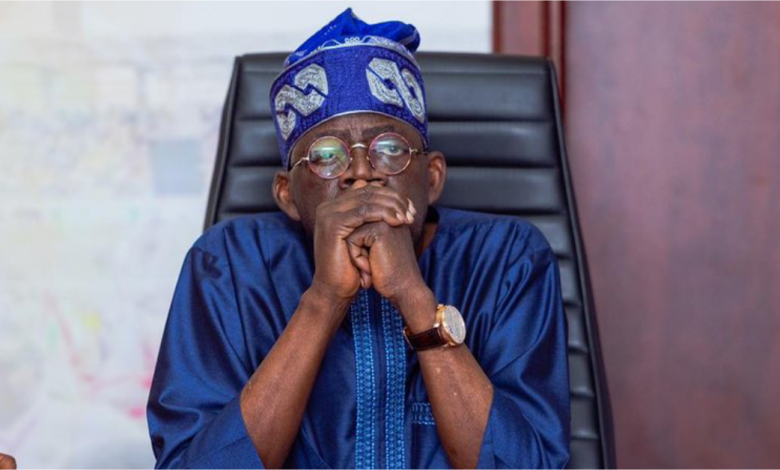
Experts have expressed concerns over Nigeria’s rising debt profile due to persistent borrowings by the Bola Tinubu-led federal government.
This is even as Nigeria’s external debt profile is projected to rise above $51.759 billion following President Bola Tinubu request to the National Assembly’s approval for fresh $8.6 billion and €100 million foreign loans.
The President’s request is part of the external borrowing plan for 2022-2024 for critical infrastructure, such as power, roads, water, railway, health.
The country’s external debt stock at as June 2023, according to data from the Debt Management Office (DMO) stood at $43.159 billion, while its domestic debt stock is N54.130 trillion.
Analysis of the external debt showed that multilateral borrowing gulped $20.790 billion; bilateral, $5.518; commercial, $15.618 billion; promissory notes $931.7 million and $300 million.
Meanwhile, Nigeria’s total public debt (domestic and external) as at June 2023 stood at N87.379 trillion.
Reacting to the President’s request yesterday, Olatunde Amolegbe, immediate past President of the Chartered Institute of Stock Brokeers, CIS, said: “The truth is that external borrowing for infrastructure development is not a bad thing in as much as the infrastructure are actually built and at reasonable cost.
“We cannot hope to have a developed and production-based economy without infrastructure and financing those with internally generated revenue sources could take forever and cost much more ultimately.
‘’What is needed is probity and accountability in the utilization of borrowed funds and execution of projects.”
Also reacting, Clifford Egbomeade, who’s the Communications and Public Relations Adviser at ID Africa, said: “Borrowing for critical infrastructure is a common strategy globally, but its sustainability is crucial.
“Continual reliance on external borrowing by government raises concerns about the economy’s debt profile and its potential implications. While infrastructure development is essential for economic growth, an unchecked borrowing pattern can lead to higher debt servicing costs, constraining future budgets, and potentially impacting long-term economic stability.
‘’It’s critical to balance borrowing with revenue generation and efficient allocation of funds.
“The way forward involves a multi-pronged approach. The government should strengthen revenue streams through improved tax collection, reduction in wasteful expenditures, and diversification of the economy away from oil.
‘’Encouraging private sector investment in infrastructure projects through public-private partnerships (PPPs) can also alleviate the burden on government borrowing. In addition, there should be transparency in government’s borrowing, while ensuring that borrowed funds are used effectively.”
in his reaction, David Adonri, Executive Vice Chairman at HIGH CAP Securities Limited, said: “If it’s in dollars, then the President has forsaken the advice given by the DMO to avoid further external debt.
‘’That professional advice was also echoed by the Coordinating Minister of the Economy when he appeared before the Senate. Nigeria’s debt has surpassed sustainability level.
‘’The country has already been thrown into a debt trap that we must be extricated from.
Further sinking FGN in debt, instead of repaying existing debt, in order to repair the damaged balance sheet of government, is a contrarian strategy that may end up in sovereign default ultimately.
‘’Piling of debt by FGN for any reason exacerbates the risk of its bankruptcy or financial failure. Instead of looking outwards to finance the development of Nigeria’s infrastructure, domestic factors should be mobilized for the purpose.
‘’This way, the need for external debt will be minimized and domestic value chains will be energized across board.”
Also reacting, Tajudeen Olayinka, CEO, Wyoming Capital and Partners, said: “Whenever government resorts to external borrowing, against using domestic financial markets to raise money for funding infrastructure, it hopes to reduce crowd out effect on private sector borrowings.
‘’However, the current stock of public debt, especially from the point of view of unsustainable level of revenue-to-debt service ratio, is enough to give anyone serious concern.
‘’I still have a strong belief that this new external borrowing is to help improve dollar liquidity in the foreign exchange market, in a way to bring back confidence to the market.
‘’The fact that foreign portfolio investors are not immediately ready to play in our local financial markets, means that every genuine effort to provide liquidity to the foreign exchange market must be carefully worked out by government in the interest of the economy.
‘’It is important to point out that excessive and unsustainable level of public debt could hurt the economy in the medium-to-long term. Nigeria’s economy is really in an emergency situation.”
On his part, Ayorinde Akinloye, an economist and Investment strategist, said: “Nigeria is in a debt conundrum. We don’t have adequate revenues to support necessary infrastructure projects due to already heavy debt burden and the associated costs of servicing the debts.
‘’Thus, it may be argued that it is plausible for us to borrow to fund these projects considering tight income.
“On the other hand, Nigeria is already heavily indebted and the recent devaluation is likely to only make our debt burden worse in the near term.
“Overall, I suspect the external borrowing will be a multi-lateral loan with accommodative interest rates and payment terms which should be a marginal relief.
‘’Nevertheless, this spate of persistent borrowing will only continue to put pressure on fiscal management, while worsening the debt hole Nigeria is in.
“In the long run, the FG must take fiscal reforms serious if we are to put an end to this vicious cycle.”
